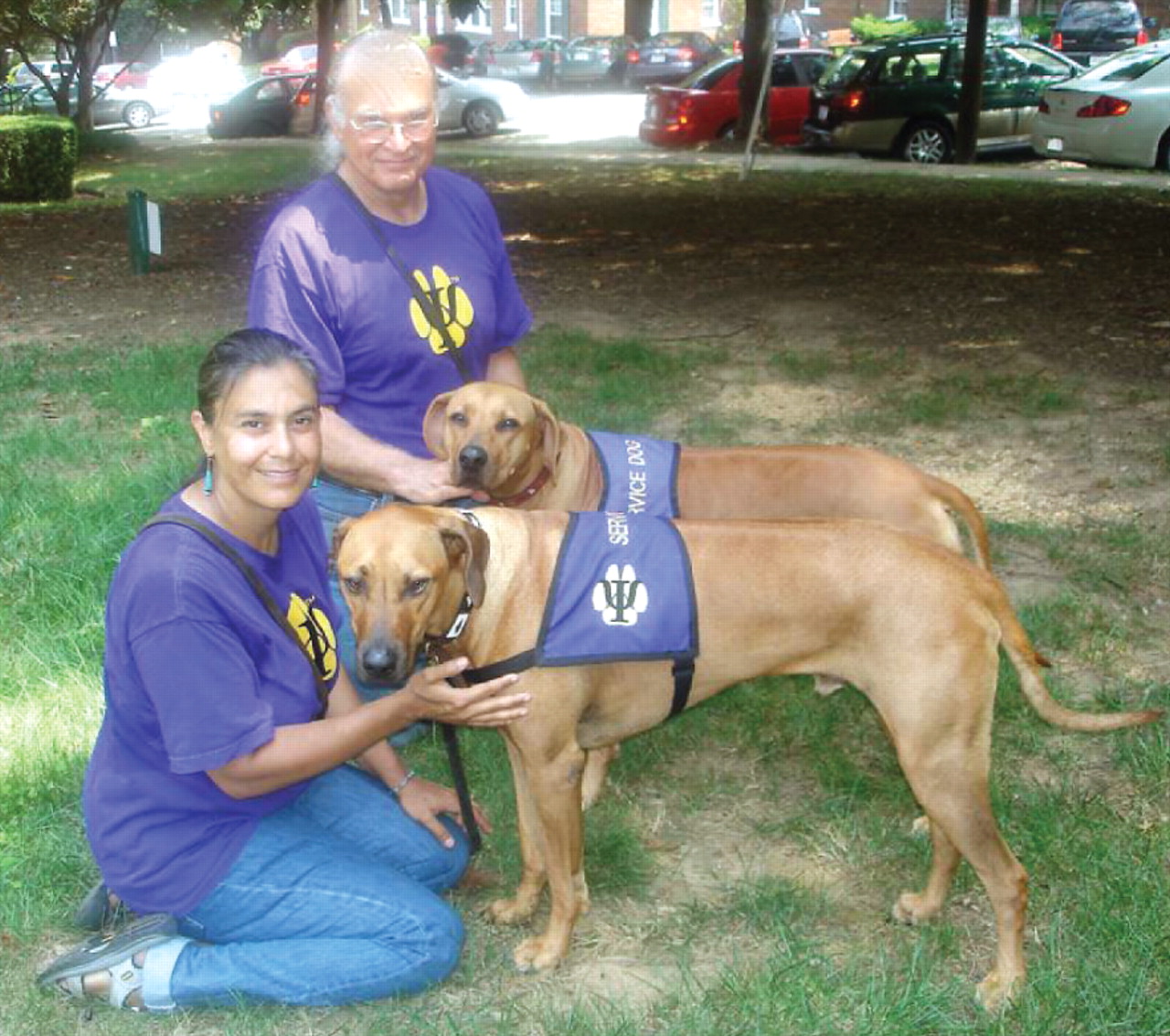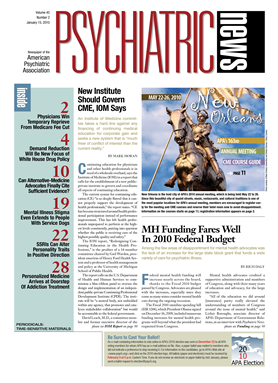Mental health advocates have launched an effort to get federal aviation officials to reverse a new order that places special requirements on people who use trained psychiatric service dogs and want to take them on commercial flights.
The effort aims to roll back regulations by the Federal Aviation Administration (FAA) in effect since May 2009 that require people who use psychiatric service dogs to provide documentation from a clinician that the animal assists with a psychiatric illness. Other types of service dogs are allowed on flights if their owners simply state that their dogs are service dogs.
“It just creates an onerous set of burdens for people with psychiatric illness if they want to travel,” said Jennifer Mathis, an attorney at the Bazelon Center for Mental Health Law, in an interview with Psychiatric News.
Bazelon has joined other mental health advocates, including the National Alliance on Mental Illness (NAMI) and the Psychiatric Service Dog Society (PSDS), in urging federal officials to reverse the regulations that were promulgated during the George W. Bush administration.
The FAA is considering a PSDS “petition for rule making” that, if approved, would reopen the regulations for public comment and change. If the FAA consents to revise the regulations, it could take another year for those changes to move through the review process and become effective.
The new travel regulations have already had a large impact on people who use psychiatric service dogs, Joan Esnayra, Ph.D., president and founder of PSDS, told Psychiatric News. She has been told by dog trainers that many of the estimated 5,000 people with psychiatric service dogs who wanted to travel during the last Christmas season were unable to do so because they lacked insurance and had no clinician to write the required documentation. Others balked at having to admit to airline personnel that they had a psychiatric illness. Some simply pretended that the dog was for a physical ailment and gave assurances to airline staff to that effect, which airlines are required to accept under federal law.
The impact of the regulations could increase in future years since use of psychiatric service dogs has expanded among people with mental illness, including posttraumatic stress disorder (PTSD). A growing number of veterans with PTSD, in particular, have found trained psychiatric service dogs helpful in waking them from violent nightmares and reorienting them when they begin to suffer combat flashbacks, Esnayra said.
Psychologist Carmen Davis, Ph.D., has had several patients in recent years who have used such service dogs and considers them as important as medication in the health of her patients.
“The dogs are absolutely essential in terms of keeping people grounded and present in reality,” she told Psychiatric News.
Davis described the requirement for people with psychiatric disorders to disclose their conditions to airline personnel as “discriminatory.” “There is so much shame and stigma attached to mental illness, anyway,” Davis said.
Mental health advocates are hoping to reverse the travel requirements quickly through an executive order from Obama. They have been told by members of the Obama administration that it is open to reversing the regulations, but so far no action has been taken.
“If it's a concern about the certification of psychiatric service dogs we can address that, but otherwise it seems like a violation of the Americans With Disabilities Act,” Ron Honberg, director of policy and legal affairs at NAMI, told Psychiatric News.
Neither the White House nor FAA responded to requests for comment.


